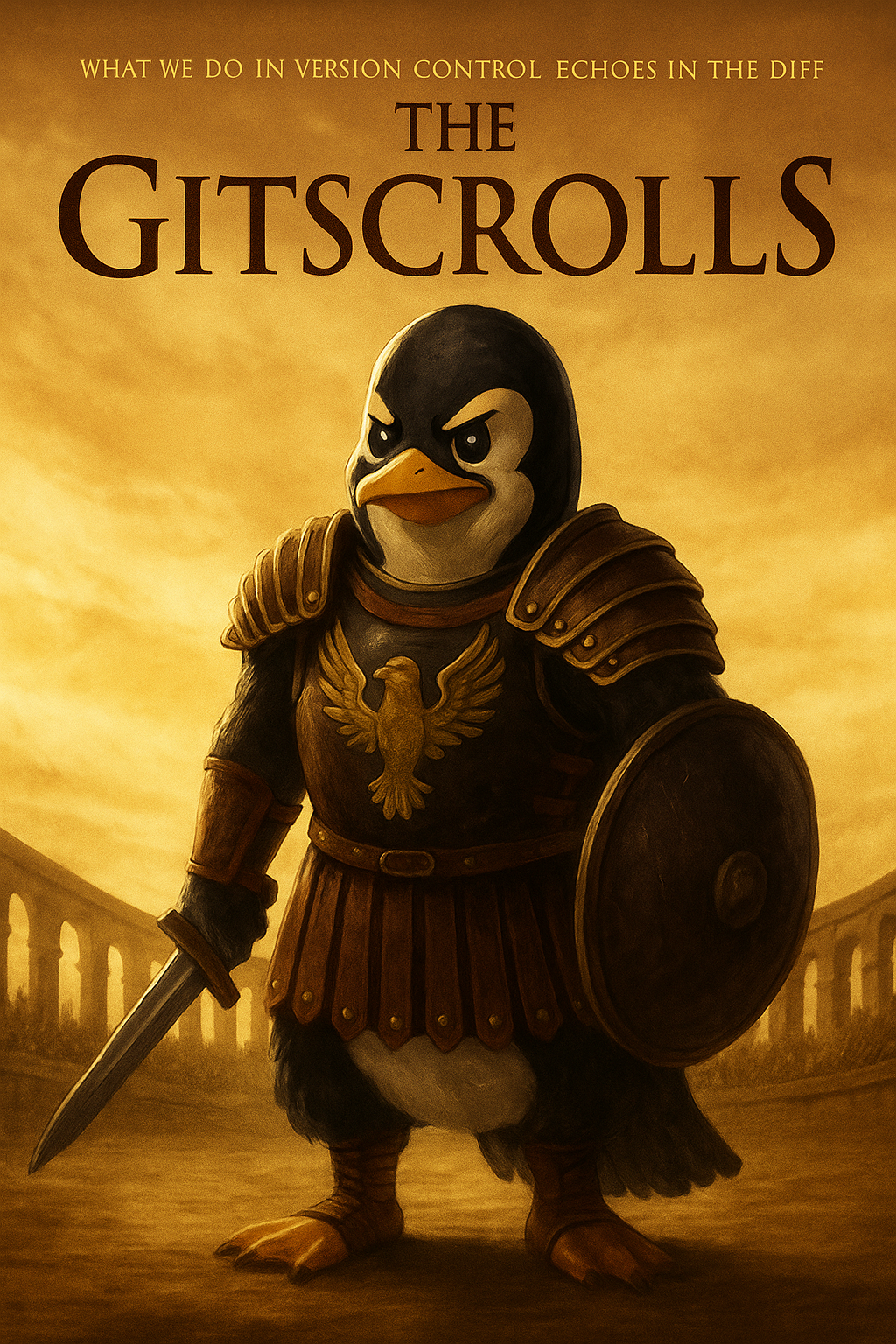Ten scrolls inscribed with the fire of failure and the ink of insight—chronicling a developer’s transformation through the ancient rites of version control.
There once was a developer who mistook cleverness for mastery.
His name was Tuxicles, and his pride rewrote an authentication system so thoroughly, it undid trust itself. In the silence that followed—amid broken deployments and user despair—he was cast out from the Temple of Open Source.
But exile is not the end.
Guided by spectral maintainers—Linus the Elder, The Prophet of Red-Green, The Fork-Bearer of Freedom—Tuxicles walks the long path of remorse and repair. With every scroll, he earns not just knowledge, but wisdom paid in scars.
Each scroll is a parable. Each merge, a ritual. Each test, a prayer:
- I. The Unbroken Line — "Do not trade your history for the illusion of mastery."
- II. The Chronicle of Forgotten Messages — On the sanctity of clear speech
- III. The Oracle’s Testament of Devotion — "Tests are proof of love."
- IV. The Schism Scrolls — "A fork is not a betrayal—it is a hope divided."
- V. The Wounding of Hubris — Where compassion cuts cleaner than critique
- VI. Songs of the Chaos Sirens — "Even the bug sings—listen closely."
- VII. Between the Monsters of Time — Navigating the twin fangs of Premature and Too Late
- VIII. Before the Ancient Reviewer — "Blame not to shame, but to remember."
- IX. The Commandments of the Wise — How teachings echo through generations of code
- X. Where Heroes Go to Die — And why the circle remains unbroken
Because doctrine alone cannot save you at 3 A.M.
Because git does not forgive, but it may yet teach.
Because the human behind the keyboard is the true compiler of all meaning.
The GitScrolls are not tutorials. They are testaments.
They are written for:
- 🐣 The junior, lost among best practices, seeking purpose
- 🧙 The senior, rich in scars but poor in parables
- 🧠 The mentor, whose silence has grown louder than their teaching
- 🫂 The broken, who wonder if they still belong here
- 📖 The storyteller, who knows that truth in prose dies young—but truth in myth endures
